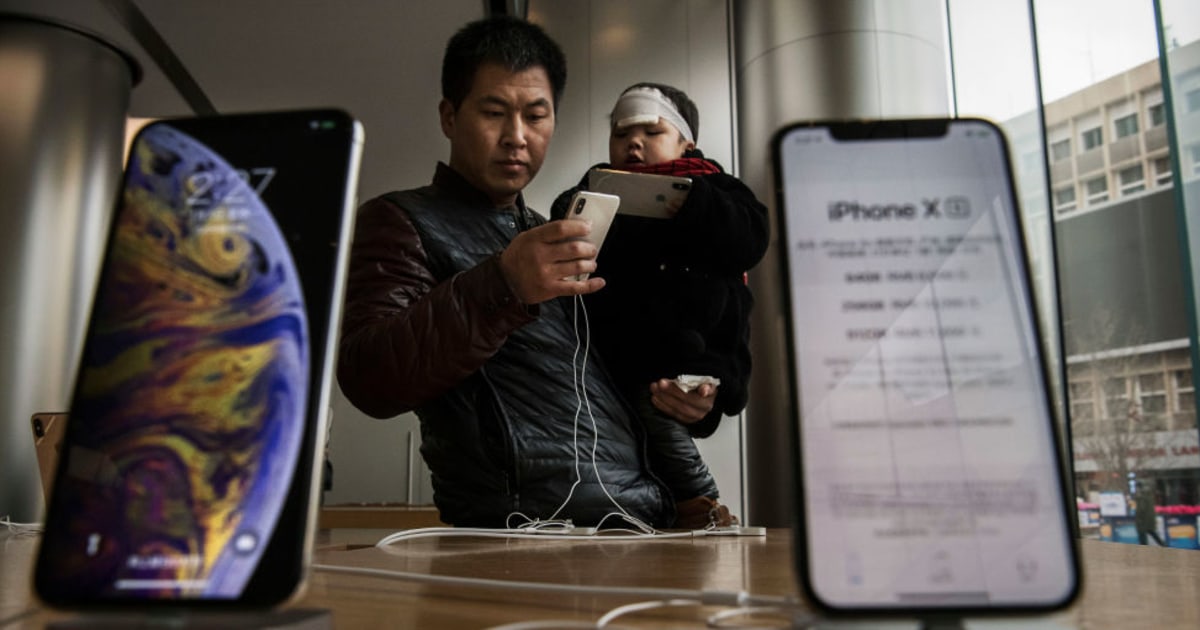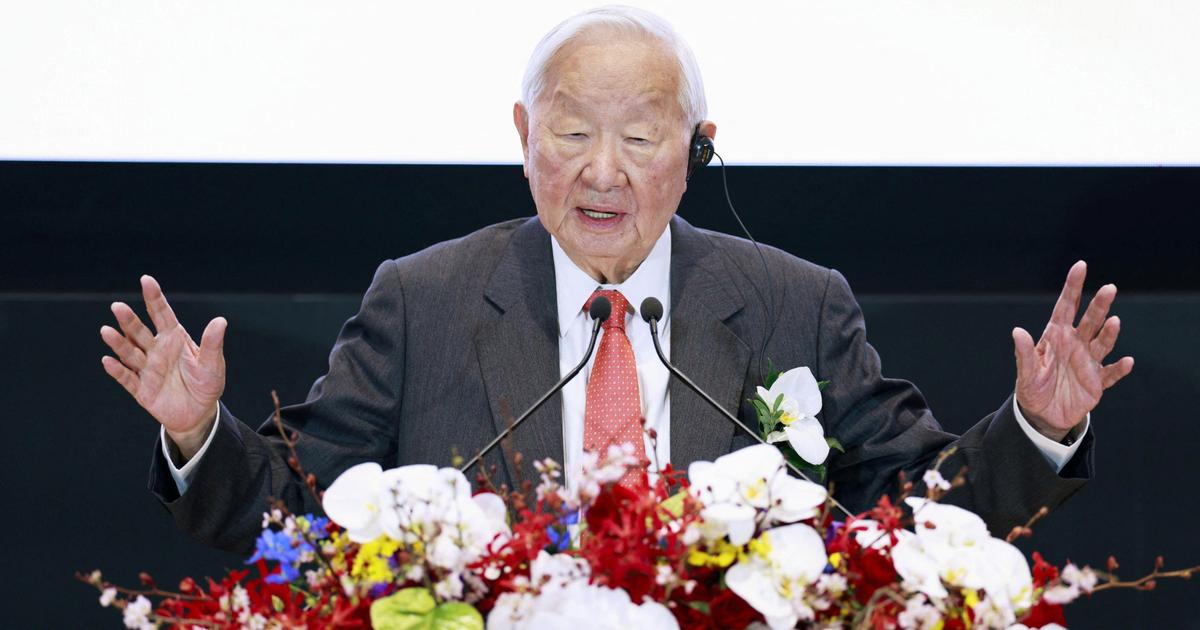Tim Mullaney -
CNBC
President Joe Biden's big push to make more semiconductors in the United States has many economic and industrial policy goals: creating good-paying American jobs, ensuring supplies of a key technological material with national security implications in a growing geopolitical and technological rivalry with China, reinvigorate domestic manufacturing, and set new conditions for lucrative tax breaks for businesses.
But there's another potential consequence: The CHIPS Act may also increase prices on a wide range of consumer electronics.
[The White House backs a bipartisan bill that allows Biden to ban TikTok and regulate foreign technologies]
The $54 billion Chips and Science Act, signed by the president on August 9, has made headlines for the long list of regulations that the Biden government proposed on February 28 to attach to applications for aid to the factory construction: from limits on foreign investment to share buybacks and requirements for chip companies to provide childcare for workers.
So far, the law has spurred an announced investment of $200 billion in chip manufacturing in the United States, the Semiconductor Industry Association reported in December.
But one drawback, analysts say, is that moving manufacturing to the United States will increase the price of making chips and perhaps the most popular devices that use them, such as cell phones and game consoles.
[Personal data of "hundreds" of congressmen and government workers in the capital are leaked]
The exact price increase will depend on how much higher companies such as Apple Alphabet and Samsung and other phone makers adjust designs, supply chains and processes to cut other costs, says Angelo Zino, an analyst at CFRA Research.
how much are the chips
At first glance, a significant increase in the price of chips is passed on to consumers, since they are a very important component of the total cost of manufacturing a phone.
About 54% of the estimated $527 manufacturing cost of an iPhone 14 Plus accounts for the cost of the phone's semiconductors, according to Narinder Lall, who leads so-called "teardown analysis" of tech devices for TechInsights, a technology insights firm. Ottawa-based semiconductors.
The government's plan for Latinos to appear in the census generates controversy
March 12, 202302:05
An estimated $81 represents the cost of the phone's A15 core processor, designed by Apple and manufactured by TSMC, according to Lall.
Other chips in the world's most ubiquitous electronic device take care of the iPhone's communications and memory.
Semiconductors make up the most expensive component in an iPhone, whose screen costs about $64, and another $98 is spent on the cameras, which themselves contain chips made by Sony, according to TechInsights.
[Catholics spent $4 million to find out which priests used gay apps like Grindr and report them to bishops]
The Tensor chip in the competing Google Pixel 7 phone costs $101, according to Lall.
The phone's camera costs an estimated $88.
For Samsung, the combined 5G modem and basic applications processor add up to $193 of the $618 manufacturing cost of an S-22 Plus phone.
Some telecommunications executives are concerned about a significant increase in costs.
Robert Morcos, CEO of Social Mobile, a provider of mobile communications services for businesses, cites estimates that the cost of manufacturing the chips could rise by as much as 40%.
A Chinese man holds his son as they look at iPhones on display at an Apple Store in Beijing, China, on January 7, 2019.Kevin Frayer/Getty Images
Using the iPhone as an example, that could equate to more than $100 of new cost.
Bringing chip manufacturing to the United States is expensive in many ways.
For starters, it is more expensive to build operations and hire labor and equipment.
Taiwan Semiconductor Manufacturing Company Wendell Huang, the company's CFO, told the latest earnings call that US chip factories are much more expensive than those in Taiwan, today's top chip supplier.
[The Five Things That Ruin a Good Night's Sleep, According to a Doctor]
“The main reason for the cost difference is the construction costs of buildings and facilities, which can be four to five times higher in a US factory than in a Taiwanese one,” Huang explained.
“High construction costs include labor costs, permit costs, the cost of occupational health and safety regulations, inflationary costs in recent years, and personnel and learning curve costs” .
A recent New York Times report on CHIPS quoted a TMSC supplier as saying the cost to build a factory in Arizona was “far above” his customer's expectations.
The debate over how much an entirely American-made iPhone could cost has been a parlor game for years, with claims the cost could skyrocket to as high as $30,000.
But the most widespread analysis has concluded that the price would increase by about $100 if all the parts of the phone were made in the United States.
And technology analysts analyzing the implications of the CHIPS Act say that device makers like Apple will not pass on significant price increases related to the cost of chips.
[Putin meets with a senior Chinese official who is supporting Russia as it prepares an international proposal on Ukraine]
“Apple won't raise the price of an iPhone by $100;
they know how to find other ways to contain costs,” says Zino.
While Apple, and Tim Cook in particular, are famous for dominating global tech logistics, Samsung may be better able to control costs throughout the supply chain, according to Zino, because it is believed to make phones largely to provide a market to its giant device chip and display manufacturing businesses, which have historically generated significantly higher profits than its
hardware
operations .
“They control a higher percentage of the supply chain than any other hardware company on the planet,” he says, and that means greater cost savings for consumers.
Inflation hits the price of flights and hotels for the 'spring break'
March 11, 202300:49
Apple's bulging margins will help mitigate any impact.
"We don't expect Apple to fully pass on the potential increase in the cost of chips to the consumer," says Linda Sui, director of smartphone strategy at TechInsights, arguing that Apple's profit margins of around 40% give it headroom. to absorb chip price increases and keep iPhone wholesale price increases at around 2% this year.
"Given the great loyalty and loyalty of iPhone users, we expect the impact on the consumer to be minimal," Sui said.
The new law includes $39 billion in manufacturing incentives to offset some of the higher costs, according to the White House.
Another $13.2 billion goes to research and development and workforce development.
The law provides for a 25% investment tax credit for capital expenditures for the manufacture of semiconductors and related equipment.
[Xi Jinping achieves his third presidential term in China and consolidates his power]
Apple already designs products and chips in the United States, Zino said.
And it has committed to making about a third of its chips at the Arizona plants that Taiwan Semiconductor Manufacturing Corp. is building and opening next year.
China and the problems of the relocation of the technological supply chain
Apple's shift toward US-made chips will take time, Zino said, because Apple has had to pressure its partner to make its most advanced products in the United States.
The most advanced devices use 3-nanometer chips that TSM won't make in Arizona until 2026, but has been making in Taiwan since last year.
“They will continue to use [foreign factories] for years to make the next-generation phones,” Zino said.
Service industry leads US job creation but faces other challenges
March 6, 202301:57
Apple CEO Tim Cook was asked by an analyst at a recent earnings conference whether he had studied the "elasticity of demand relative to small price increases" that might occur in connection with CHIPS. .
Cook did not offer a direct answer.
“We don't know exactly what it will be, but we're all in, in terms of being TSMC's largest customer in Arizona.
I am very proud to participate in it.
That is what I would say about it,” he stated.
[Entrepreneur Elon Musk regains the throne as the richest person in the world]
Apple's moves to diversify out of China will be gradual because it needs to stay on good terms with the Beijing government, said Jeff Fieldhack, research director at Counterpoint Research.
The world's most valuable company is estimated to make between 90% and 95% of iPhones in China, garnering 43% of sales in fiscal 2023 from Greater China, including Taiwan.
"It's a tough dance for Apple," Fieldhack said.
Morcos says that one of his main concerns is the narrow-mindedness of the CHIPS Act.
If the manufacturing of related devices, such as batteries, sensors, cameras, antennas, and hundreds of other components, is not returned to the US, the manufacturing process could require that the most critical component be produced in the US and then shipped. shipped abroad to be assembled with hundreds of other components into a device that is then shipped back to the US for the US consumer.







/cloudfront-eu-central-1.images.arcpublishing.com/prisa/F3T7G2MNZFFJ7HVGRKZCTCOXEE.jpg)






